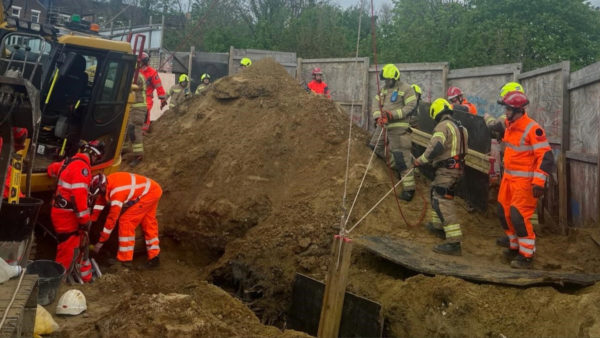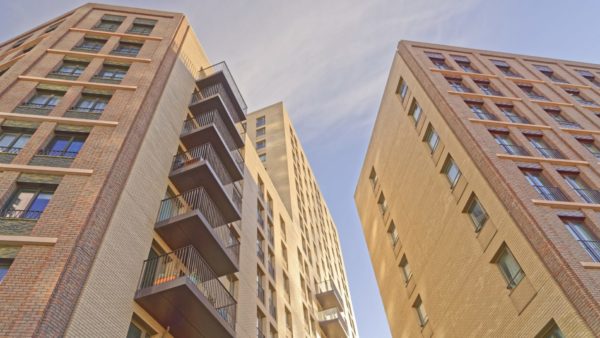
The recovery in UK construction output started to slow in July amid difficulties with materials shortages and reduced subcontractor availability.
That’s according to a survey of construction buyers. The HIS Markit/CIPS UK Construction PMI Total Activity Index registered 58.7 in July, down sharply from June’s 24-year high of 66.3 (where a score of 50.0 indicates no change). July’s was the slowest overall increase in activity since February this year.
Housebuilding was the best-performing category (60.3), followed by commercial building (59.2), although in both cases it was the weakest growth since February. Civil engineering activity (55.0) was also down on June.
Total order books improved in July but the rise in new work was the weakest since March.
Around 66% of buyers reported longer wait times for supplier deliveries in July. Respondents noted that in addition to high demand, supply problems were aggravated by a lack of transport availability, port congestion, and Brexit trade friction.
Subcontractors were also starting to charge more, while difficulties filling staff vacancies were adding to price pressures, the survey found.
Meanwhile, optimism regarding future output growth remained high, although the index was at its lowest level for six months in July.
Tim Moore, economics director at IHS Markit, said: “July data marked the first real slowdown in the construction recovery since the lockdown at the start of this year. It was unsurprising that UK construction companies were unable to maintain output growth at the 24-year high seen in June, especially with widespread supply shortages and constrained capacity to take on additional orders. The loss of momentum spanned all major categories of construction work and was most pronounced in the housebuilding sector.
“Long lead times for materials and shrinking subcontractor availability were cited as factors holding back work on site. Around two-thirds of the survey panel experienced longer wait times for supplier deliveries in July, while just 2% reported an improvement since the previous month.
Moore added: “Another rapid increase in purchasing costs was linked to global supply and demand imbalances, but many firms also noted that local issues had amplified inflationary pressures. These included a severe lack of haulage availability, continued reports of Brexit trade frictions, and greater shortages of contractors due to exceptionally strong demand.”
Comments
Comments are closed.











Part of the problem has always been main contractor’s buyers leaving placing sub-contract orders until the very last minute. This continues despite the shortages of materials and causes delays that are wholly avoidable if orders are placed earlier.